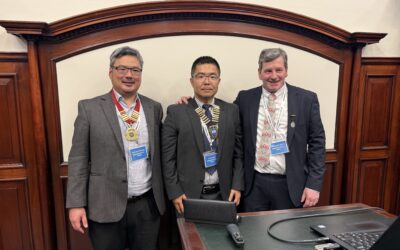The Professional Development and Training Committee (PDTC) was established by Council in 2006 with responsibility for technical, development and management matters, relating to all ICorr Training and Certification schemes, Continuing Professional Development (CPD) schemes, and courses. PDTC reports directly to the ICorr Council.
Additionally, the committee addresses the key aims of ICorr, including expansion of the membership, and promotion of the science, engineering, and technical aspects of corrosion control to the
wider public.
PDTC liaises with the Membership Development Committee, Young ICorr, CED, CSD, PAC, and any other relevant committees in initiating and developing new training schemes and courses.
There are presently two sub-committees, the Surface Treatment Governing Board and the Cathodic Protection Governing Board, who report directly to the PDTC Chair, as do the two scheme managers for Surface treatment and Cathodic protection related course work and examination material delivered by, or
on behalf of, ICorr. A further Engineering
Training Governing Board is being considered.
Roles and Responsibilities of PDTC
The PDTC manages the delivery of the ICorr Training Schemes, and Professional Development schemes of the Institute where appropriate, in conjunction with course providers.
PDTC also reviews the technical content of training courses submitted by the two sub-committees for approval, this is a robust mechanism to ensure the content is not only suitable for the market demand commercially, but technically suitable to enhance the portfolio of ICorr offerings and continue to improve course availability to the market place.
Who sits on PDTC?
PDTC consists of a Chair (currently David Horrocks), and this position is appointed by Council. At present there are 10 members offering technical support from a wide range of disciplines within their expert fields such as Cathodic Protection (CP), Coatings, Inspection, ISO Standards, and other corrosion
related topics such as Microbiologically Influenced Corrosion (M.I.C).
To be eligible to be a member of, and indeed vote on PDTC, the individual members of PDTC must be Professional Members of ICorr with a good understanding of ICorr processes and be able to contribute to the Institute’s ethics in terms of corrosion control and mitigation.
The present members of the PDTC are the vice president, past presidents of ICorr, surface treatment and CP scheme managers, and sub-committee chairs, consultants, and technical experts.
ICorr encourages all its members to get involved with the Institute and would welcome anyone wishing to participate in any of the working groups/committees to contact, president@icorr.org


